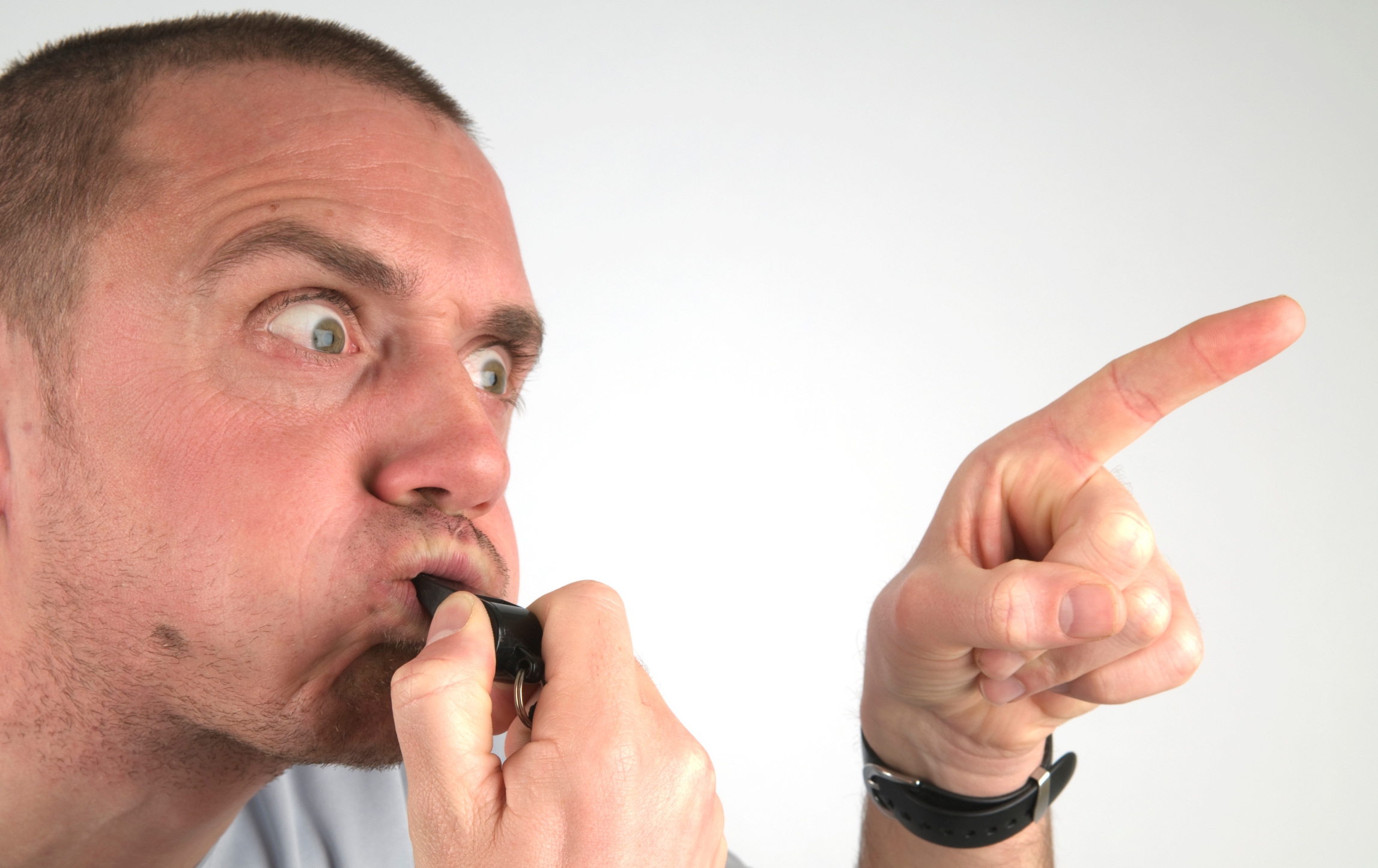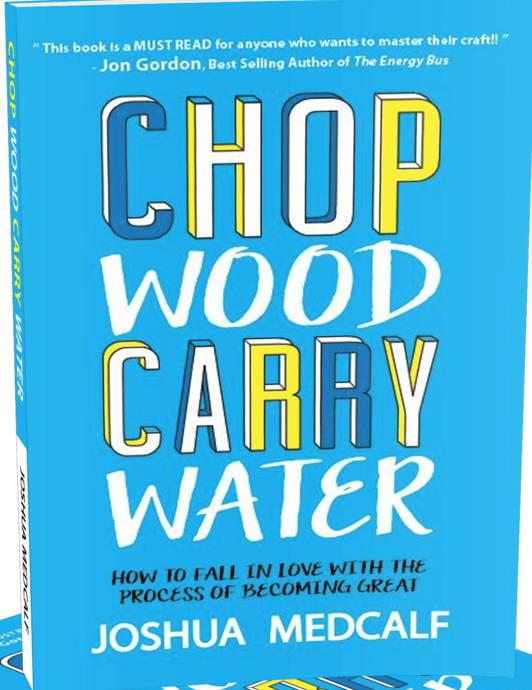“I think my kid’s coach is a bully, and I don’t know what to do,” a distraught parent named Dan said to me the other day. “My kid hates a sport he used to love. He has been called things by his coach that no kid should ever be called. Forget sports; this is trickling into every aspect of his life!”
“I’m a teacher,” he continued, “and if I treated my students like that everyone would go to the principal. But it is his coach, so we all stay quiet. I am afraid if I say anything to this coach, or to the school, my son will be the one who suffers. What do I do?”
Have you ever felt like Dan did in this situation?
Have you felt that your son or daughter was being treated in a way that had potential long term consequences far beyond the sports field, yet felt helpless to intervene because you were afraid it might even make the situation worse? Has your child told you “just forget about it” even though you see negative effects from the behavior on and off the field?
Could there be a more difficult situation in youth sports for a parent and an athlete?
Sadly, bullying behavior by coaches is not uncommon. Far more worrisome, though, is that it is often overlooked in the sport arena, by the very same educational administrators that would never tolerate such behavior by a teacher. In the club sports world, with far less oversight, I fear the problem may even be worse.
A year ago I set out to write this very article, and instead ended up penning one called Are Great Coaches Becoming an Endangered Species? I did so because in my experience people often misunderstand bullying, or mischaracterize tough, challenging coaching as bullying. Without rehashing that entire article here (and before you go off on kids getting soft and this is competitive sports, etc., I encourage you to read it as we are all for coaches who hold kids to a high standard when done the right way)
Here is a partial list of items that are often mistaken as bullying, but are in fact why coaches are so necessary in the life of a child. A great coach improves sport performance and teaches life lessons by:
- Positively pushing your child out of his or her comfort zone to improve performance;
- Demanding focus and effort each and every day, whether at practice or competition;
- Playing your child in an unfamiliar position to stretch his or her ability to handle adversity;
- Does not feel pressure to start your child every game to appease you, the parent;
- Having higher expectations for your child than you or your child has
- Having a different opinion of your child’s potential than you do;
- Expecting commitment and following through with reasonable repercussions for players who do not fulfill it, applied equally for every player;
- Expecting your child to adhere to team rules and standards;
- Holding your child to a standard that you might not hold him or her to, regardless of the effect it may have on the outcome of a game.
So what makes a coach a bully?
First of all, in this article Signe Whitson gives an important explanation of the differences between being rude, being mean, and being a bully. Being rude is inadvertently saying or doing things that hurt others. Many coaches use sarcasm in their coaching, and they unintentionally hurt their players. While these actions might seem to be bullying, according to Whitson, in context they are actually “incidents of rudeness that are usually spontaneous, unplanned inconsideration, based on thoughtlessness, poor manners or narcissism, but not meant to actually hurt someone.”
Some coaches are downright mean, in that they intentionally say and do things to hurt others once or twice. Mean coaches are different from rude coaches because of the intent. “Why did I ever pick you for this team Johnny, you are a waste of a uniform.” “Jenny, you are so slow, and you are 20 lbs overweight, you really shouldn’t be out here.” These comments are downright mean, and not appropriate for a coach. Yet by definition, they are not bullying if they happen once or twice, according to Whitson (sadly, that one comment could still be one that makes a child quit).
Bullying, as defined by Whitson, is intentionally aggressive behavior, repeated over time, that involves an imbalance of power. Bullying entails three key components:
- An intent to harm,
- A power imbalance
- Repeated acts or threats of aggressive behavior.
This behavior can be physical (which is usually caught and dealt with), verbal, even technological. It happens time and again even when the athlete demonstrates hurt and asks for it to stop.
Sadly, many coaches are mistaken that their insulting teaching style is fine because their results justify a style of coaching that may cross the threshold from rude to mean to bully. The most fascinating and disheartening aspect of this type of coaching, according to author Linda Flanagan in this 2015 article for The Atlantic, is “the persistence of these coaching methods [given] America’s cultural intolerance for threatening or demeaning language in other public spheres, especially schools.” Forty-nine states have passed anti-bullying laws and others have passed laws promoting good sportsmanship, yet, according to Flanagan “Ridiculing your own team, apparently, remains permissible.”
This is unacceptable and plain wrong. It is damaging to kids, and actually produces far poorer results than a culture of love and respect for athletes. As this 2015 paper by researchers with the American Psychological Association found, positive, ethical leadership from coaches promoted healthier team atmospheres. The researchers concluded that “Coaches who provide high levels of encouragement, support, and autonomy are more likely to foster positive psychological responses in their athletes and ultimately lead to higher levels of performance.”
Two years ago, I was introduced by a mutual friend to Jennifer Fraser PhD., author of the excellent book Teaching Bullies: Zero Tolerance on the Court or in the Classroom. Fraser was a teacher at a prestigious school where her own son was bullied by some of her colleagues. As she tells it:
“Our sixteen year old son was competing at the 2012 Provincial Basketball Championships in British Columbia when one of the boys on the team texted his parents to say he “couldn’t take it anymore.” The coaches were calling the team “a bunch of pussies”, “hopeless” and “retarded.” For my husband and me, that was the point of no return.”
When we heard those words,” Fraser continued, “we knew we had to get our son away from those coaches. No matter what it took, we could not let our son be spoken to like that. This wasn’t the first time we’d seen or heard there was something wrong on the team with how the coaches were “motivating” the players, but this time, there was no going back. We could no longer excuse or forgive. The basketball court, that our son loved so much, was becoming a place he dreaded and hated.”
Fraser has since gone from a teacher and mom to an advocate and spokesperson for bullied athletes across the globe. She has become a voice in an arena where we are far too quiet (check out this article and fascinating video on her son’s situation).
The tide may be turning in high visibility sports, especially for college athletes. Disgraced former Rutgers basketball coach Mike Rice was fired once video of him screaming, insulting, and physically assaulting players came to light. (It makes one wonder how many coaches behind closed doors are verbally and physically assaulting athletes.) Other coaches have been similarly dismissed. The NCAA has even enlisted Dr. Ben Tepper of Ohio State, a world renowned expert in abusive behavior in the workplace, to study its coach/athlete relationships. What he found stunned him, as he discovered that abusive relationships in college sports were two to three times as prevalent than in the regular workplace.
While college coaches have far more scrutiny, and thus may be called out for their behavior, I fear that youth coaches and high school coaches operate under a far less powerful microscope, and point to their won loss records and the softening of the millennial generation when justifying their coaching styles. It is these coaches that worry Fraser the most:
“At the school where our son played basketball,” said Fraser, “at the request of the Headmaster, fourteen students gave detailed testimonies about how the coaches were treating them. The police said that there was a ‘definite pattern in the complaints, all pointing to verbal and emotional abuse.’” However, the police could not intervene, as emotional abuse is not in the Criminal Code. Over the course of three years, Fraser and a dedicated group of parents appealed to school administrators, the Inspector of Independent Schools, BC School Sports, the Commissioner for Teacher Regulation, the Ministry of Education, and the Ombudsperson. “To date,” says Fraser, “no one has done anything to hold the teachers to account for bullying conduct.”
As difficult as it seems, the worst thing you can do in a situation where a coach is truly engaging in bullying behavior is to do nothing. Much like situations of sexual harassment in the workplace, all too often bullying behavior is allowed to continue because people fail or are afraid to act. They think if they keep their head down and avoid the bully it will pass, and they do not want to draw unwanted, additional attention to themselves. But this only allows the environment to exist for others. We must be courageous and say something.
So what is a parent or athlete to do in this situation? Here are a few ideas, and I hope below this article in the comments some of you will share additional thoughts regarding this very difficult situation.
First, before you do anything, take a moment and realize how much pressure is on a coach. This does not excuse bad behavior, but It is very hard to be a coach these days. There is balancing playing time, recognition, parental expectations, the pressure to win or be fired, on and on. Broaching a conversation about coaching style in a respectful, non-confrontational way is much more likely to get the best results.
Parents, most importantly, talk to your child, listen to your kids and what they are saying to you about the situation, and come to an agreement about the next steps. Do not immediately try and solve the problem, but instead engage in a meaningful conversation and get all the details about what is going on. Listen, give feedback, and help your child realize that doing nothing in a true bullying situation is not OK.
Collect as much information as possible. Sometimes, kids exaggerate, so unless you have witnessed the behavior in question, talk to other parents to see if the story is the same. What one kid sees as bullying another may see as a “tough” coach that follows through with appropriate consequences. Do not be afraid to enlist outside expert help if needed, and determine if the situation is really bullying, or just a rude/mean coach (if that is the case, it may even be an opportunity for your son/daughter to have a conversation with the coach and stand up for himself/herself).
Next, set up a meeting with the coach and an additional person, either an athletic director, club director, or the next in the chain of command. Bypassing a coach and school AD and going straight to the superintendent, for example, immediately puts everyone on the defensive against you and your child. You may have to go there eventually, but at least start with the coach and his/her immediate superior. All the athletic directors I have spoken to, the vast majority whom are great people who only want the best athletic experience for your child, tell me how frustrating and insulting it is when the first they hear of an issue is from the school board, the superintendent, or the lawyer, and not from the parent or athlete.
When you have that meeting, it is not a time to discuss playing time, tactics, who made the team, how your child’s private skills coach says he is destined for stardom, etc. It is a time to address the exact intentionally aggressive behavior, repeated over time, that involves an imbalance of power as bullying is defined above. Feelings of abusive treatment towards your child is not as strong as video proof. Hearsay will not get you very far. If other athletes have suffered the same type of treatment, hopefully they too have all agreed to either participate in this meeting or have signed a statement attesting to the behavior. Be prepared that the coach and his/her superior might be defensive, even a bit confrontational, and do your best to be unemotional, and open-minded. Every once in awhile, such a meeting might help a coach see the light and change his/her behavior forever.
Finally, be sure that the meeting ends with concrete actions and dates for a follow up meeting to discuss what steps have been taken. If these things are not forthcoming, then yes you may have to take the complaint to the next level. If nothing happens in a club sport situation, it may be time to leave that team/club.
In an ideal world, these steps would change coaching behavior, but we do not live in that world. The fact is by taking these steps to confront a potential bully coach, you and your athlete may be jeopardizing playing time, a starting spot, even a place on a team, as happened recently in New Jersey. But you still must act, for the simple reason that if not you, than who? The behavior is not going to end when your child moves on. It will continue until someone decides to act. As sad as this situation is, it is also an incredible opportunity to demonstrate to your athlete that in life there is right and wrong, and that at times it takes courageous people to take a stand even when it is unpopular. Bullying persists when good people fail to act.
There is no way 2000 words could do justice to this topic, but I do hope that it starts an important discussion about the men and women charged with developing our kids on and off the field, the court and the ice. Yes, there are some bad ones, but the vast majority of them are good people who are trying their best.
Let’s empower the great coaches and help to change the rude ones and mean ones.
Most importantly, let’s take a stand against the bullies that have no place in sport, and no right to call themselves coach.














Comments